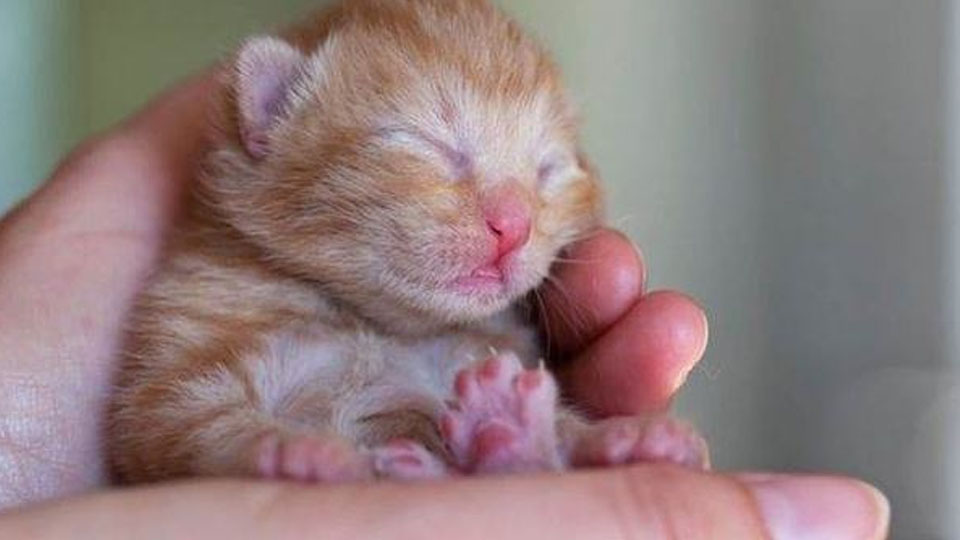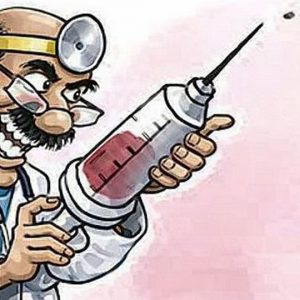In this week’s Pet Talk, Maneka gives information on how long it will take for a kitten to open its eyes and explains about moon blindness in horse, runny eyes in rabbits and?
By Maneka Gandhi
Why my kitten’s eyes are not open?
Kittens’ eyes are undeveloped and overly sensitive to light when they are first born, so their bodies keep their eyelids tightly shut. Many cat owners do not notice, but cats actually have both inner and outer eyelids. The inner eyelids are more delicate and vital to keeping a cat’s eye lubricated, clean of debris and healthy. Keeping these lids shut right after the kitten is born protects her eyes as they continue to develop.
The kittens’ eyes are given adequate time to develop in about seven to ten days following birth. However, their eyes will still be overly sensitive to the light and must be opened gradually in order for the cats to become accustomed to exposing the eyes to the outside world. Therefore, the eyes of a kitten will only be partially open at first. The kittens’ eyes will gradually become wider after the first week or so of her life. They will continue to open further until somewhere between two and three weeks of age, at which point they will be open completely.
What is moon blindness in a horse?
Symptoms of moon blindness include inflammation and redness of the eye area, murkiness, or white discolouration, of the eye, tearing, squinting, and profuse but clear tearing. The horse will be reluctant to be in bright sunlight. Although it may not be evident, the horse will be feeling pain from the symptoms. It may affect one or both eyes. Your veterinarian will examine your horse’s eyes to determine which structures within are affected, to distinguish it from a ‘simple’ eye infection. Bacteria, fungus, viruses, parasites, pollen, vitamin deficiencies, autoimmune deficiencies and physical injury, all may be a cause of moon blindness. Moon blindness is regarded as recurrent because it appears to clear up and then spontaneously reoccurs. For some horses the recurrence may occur over a period of years or more frequently.
What are the causes of runny eyes in rabbits?
The most common cause of tear overflow is conjunctivitis. This can be caused by an allergic response to hay, or straw, or may be a response to a bacterial infection. A veterinary surgeon can provide antibiotic eye drops as appropriate. Excess tears may be caused by blockage of the tear duct, which may require an anaesthetic in order to flush the duct clear so tears can drain from the eye. Abnormalities of the tooth roots may also cause blockage of this duct. Inflammation, ulceration or infection of the eye may cause excess tears, as may enlargement or tumours of the third eyelid. Your vet may wish to take a swab from the eye and examine the eye with an ophthalmoscope — neither will cause your rabbit any pain, just a little discomfort.
What are the pros and cons of clipping bird’s wings?
There are no pros. Vicious people clip their bird’s wings so that they cannot fly away and will be dependent on their “owners.”
How to know when bird has a parasite?
Here’s a list of some of the most common parasites that infect pet birds, and how to recognise them:
Aspergillosis: This parasitic fungus affects a bird’s respiratory system. This infection is very common in pet parrots, mallards and other ducks. A bird with Aspergillosis will show symptoms that resemble the human flu, including difficulty in breathing, abnormal or unusual droppings (including diarrhoea), nasal discharge, eye crustiness and weight loss. To prevent Aspergillosis, keep your bird’s cage clean, wash all fruits and vegetables before feeding them and wash your hands before and after handling them.
Giardia: This parasite attacks the gastrointestinal tract of a pet bird and, like Aspergillosis, can be transmitted when a bird eats contaminated food. The symptoms of Giardia in birds, as in people, include severe diarrhoea, weight loss, and dehydration. Their droppings, weirdly, may resemble popcorn. Birds infected with Giardia may also display feather-plucking and other signs of itching, and may become more vocal. Giardia is most common in birds of the parrot family, including budgies, cockatoos, cockatiels, macaws and parrots.
Sarcocystis: These parasites can cause a fatal infection that has a few different varieties. One affects the bird’s neurological system; one causes muscular disease and a third affects the bird’s lungs and pulmonary system. Symptoms of Sarcocystis include lethargy, shortness of breath, yellow droppings, tail bobbing and, in extreme cases, a bird may suddenly die.
Scaly Face Mites: Like the name suggests, this infection displays as white, scaly growths on the bird’s beak, mouth, nostrils, and eyes. There’s also a version of the infection that can cause scaly growths on the bird’s legs. Birds will lose feathers, and their legs and beaks can appear deformed, sometimes even after treatment.
The key to keep a bird free of parasitic infection is to make sure he has a nutritious diet, so if he does fall ill, his immune system can work to fight off the infection. Make sure his living area is kept clean and free of any mould or other growths. Washing your hands frequently when socialising with bird is important as well.








Recent Comments